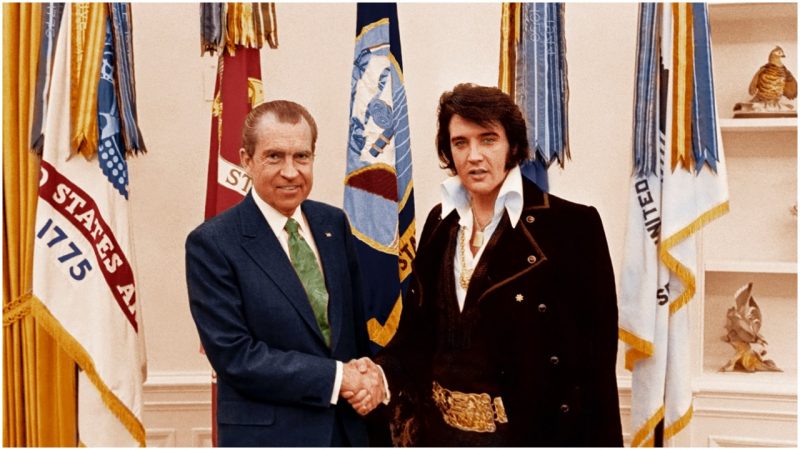In 1970, Elvis Presley, the King of Rock and Roll, met President Richard Nixon. Two more dissimilar people are hard to imagine. The King wore a purple jumpsuit and a belt buckle the size of Nixon’s head. Elvis gave the president a handgun as a gift. Nixon gave Elvis a badge.
In the age of the Internet and reality TV, there is sadly little any more which surprises us. What used to be weird and different now is commonplace. Sometimes something will capture our attention, like the latest meme or YouTube clip, but our attention spans are now so shortened that yesterday’s news is seldom even remembered a week or so later.
Billions of people the world over have the ability to capture or read about the most private or strange happenings of the world around us. What used to be private is now very public.
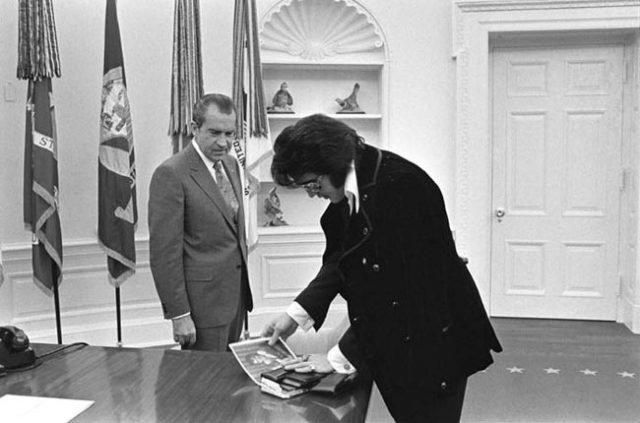
Unlike news today, the photo of Nixon and the King was not released to the public for a year. Inside the White House, Nixon and his aides debated whether or not the photo would have a negative or positive effect on public opinion.
Eventually it was decided that the photo would show Nixon in a positive light and perhaps score some public relations points with young people. It really didn’t. Most people thought it was really really weird.
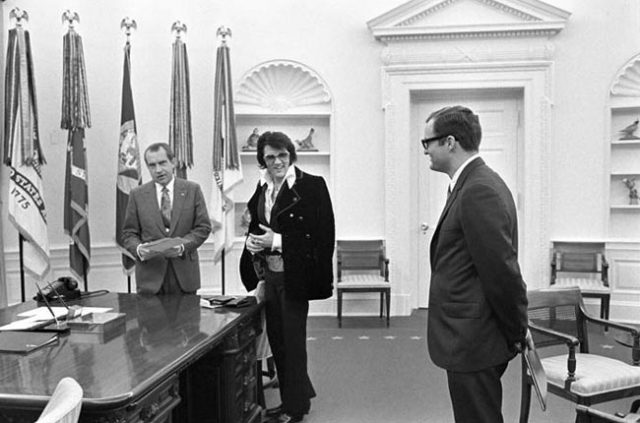
In 1970, Elvis was about two years into a comeback which saw him at the top of the charts again, and he had had a very popular run of concerts in Las Vegas. Still, outside of the South, Elvis hadn’t been really popular with younger people since the late 1950s. His millions of fans were now older, staunchly middle-class and conservative.
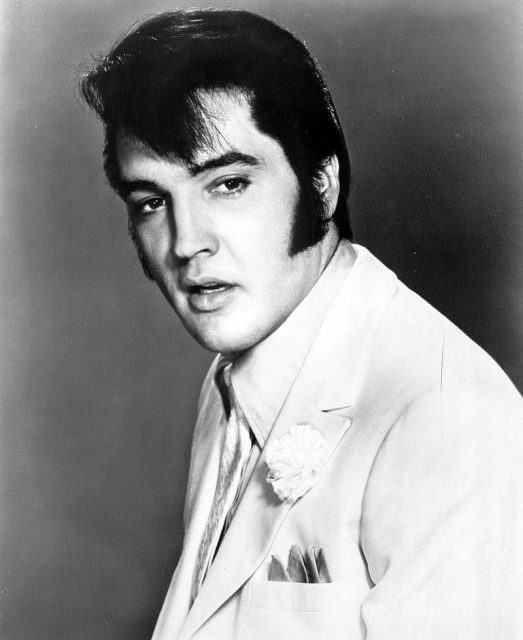
Just like Richard Nixon’s fans. In 1968, Nixon had finally ascended to the Presidency, winning a landslide over Hubert Humphrey. He had run against John Kennedy in 1960 and lost.
It’s hard to remember now, but in 1970, Nixon was a relatively popular President: he had slowly begun to withdraw U.S. troops from Vietnam, had established the Environmental Protection Agency (EPA), had pushed for greater desegregation of schools nationwide, and was two and a half years away from the Watergate Scandal which would end his presidency in shame.
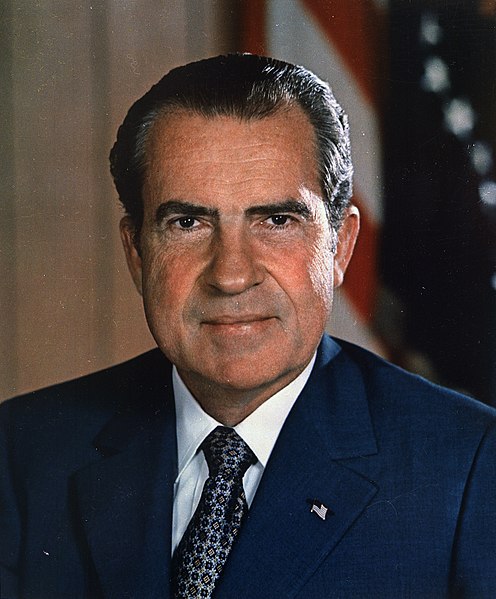
Elvis was in Los Angeles when he had an idea. No one around Elvis ever told the King that his ideas were bad, so when he suggested to two of his entourage that they board a flight to Washington DC, they packed their bags and went.
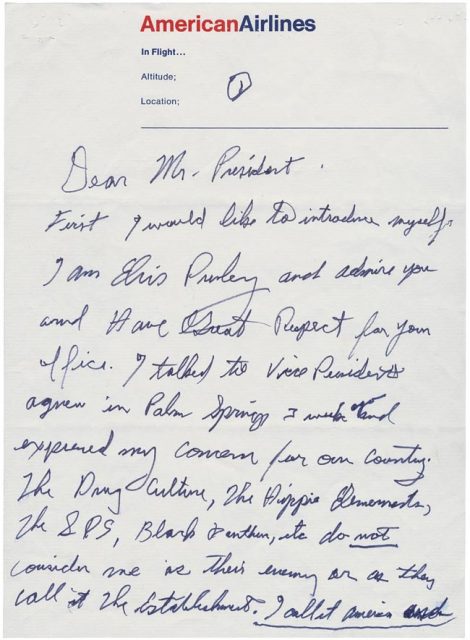
On the way across the country, the King composed a letter to the President of the United States. In part, it read:
“Dear Mr. President, First, I would like to introduce myself. I am Elvis Presley and admire you and have great respect for your office. I talked to Vice-President Agnew… and expressed my concern for our country. The drug culture, the hippie elements… do not consider me as their enemy or as the “Establishment….I call it America and I love it. Sir, I can and will be of any service that I can to help….First and foremost, I am an entertainer, but all I need is the Federal credentials…”
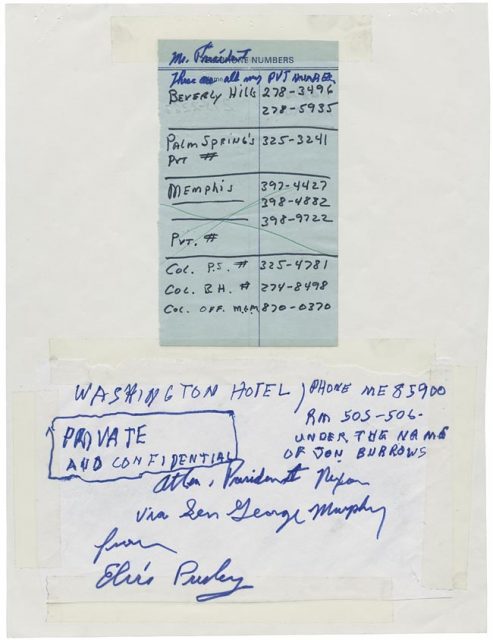
Elvis wanted a badge. The reason for it, as stated by his ex-wife Priscilla, was because Elvis “(believed that) with the federal narcotics badge, he (believed he) could legally enter any country both wearing guns and carrying any drugs he wished.” We all know that Elvis later died of a heart attack, helped along by the massive amounts of drugs he was taking.
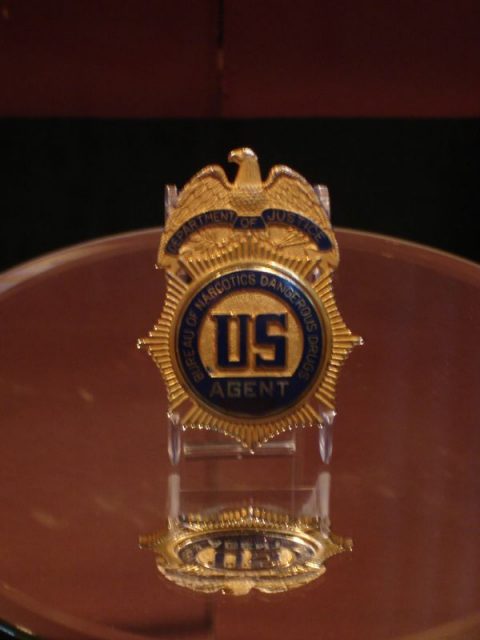
So, on the morning of December 21, 1970, Elvis drove up to the gate of the White House, handed the guards his letter for Nixon with his hotel number and drove off.
The White House staff couldn’t quite believe it, but they invited him back to meet the President later that afternoon. They thought it would give the President an “in” with the younger generation.
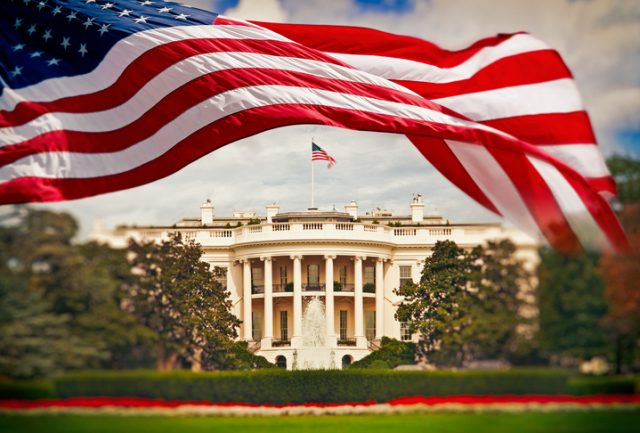
When Elvis and the two guys from his entourage showed up, they had a gun, which they didn’t feel they needed to turn over to the Secret Service – this was “The King” after all.
Needless the say, presidents beat kings in the White House, and the .45 was examined. Meanwhile, Elvis was escorted to the Oval Office, where Richard Nixon expected a quick meet and greet and photo op.
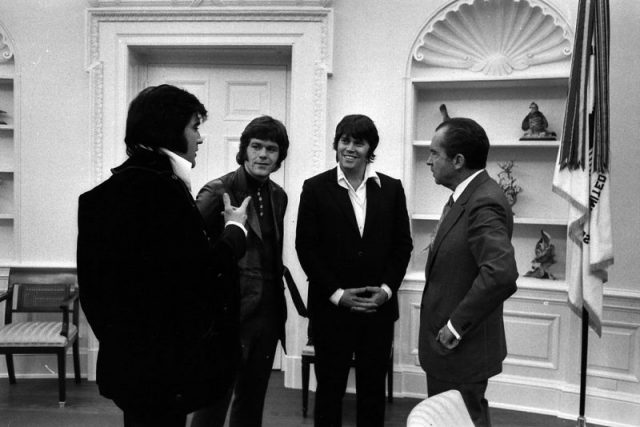
That is not what Elvis had in mind. He paced the room a little, and then sat down on the couch in front of Nixon’s desk. No one recorded the meeting, but one of Nixon’s aides, Egil “Bud” Krogh (later indicted in the Watergate scandal) was there for the entire thing and took notes shortly thereafter.
At first, Nixon kept trying to ease Elvis out of the office in the same way one would politely excuse oneself from a long-lost relative. Not getting the hint, Elvis began to tell Nixon about his experiences with the “radical left” who, Elvis believed, were working on destroying America from the inside out. This included the Beatles, who Elvis was secretly jealous of and tried to keep out of the country years before.
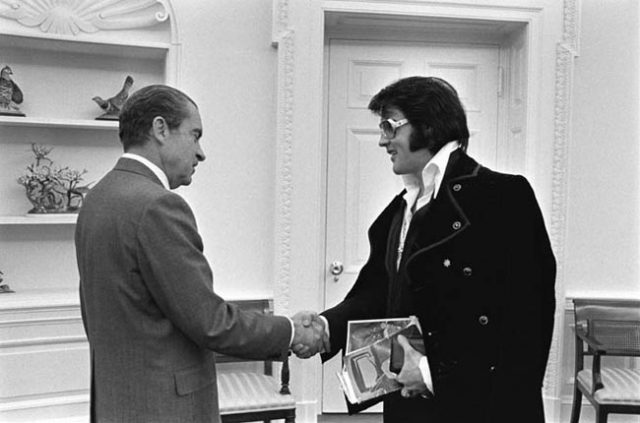
The main thrust of the conversation was the “drug culture” and how it was destroying America. Elvis felt that he could be of use to the nation by a delivering a pro-America message in his songs, and preaching/singing against drugs. No one knows for sure if Elvis actually believed this.
People with drug problems are usually in great denial – Elvis did frequently go on rants about the hippies, LSD, and how the 1960s counterculture was “un-American.”
The most ironic thing about Elvis’ speech to Nixon is that he was likely high as a kite on a variety of pills right there in the Oval Office.
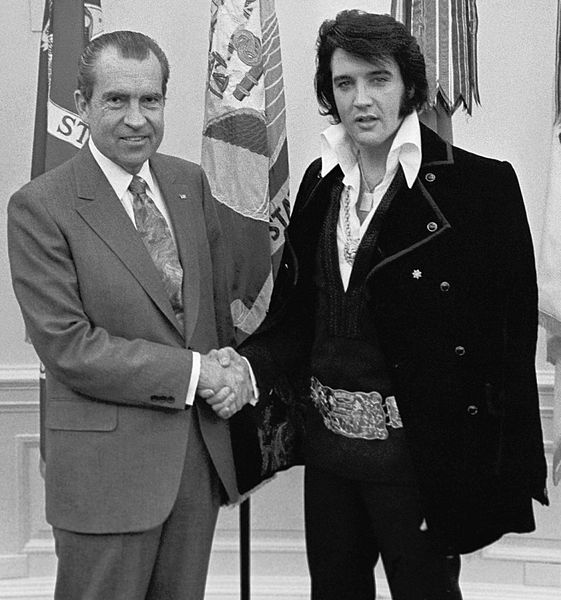
Nonetheless, everything that Elvis said struck a chord with the President, who did not understand and despised the youth culture of the 1960s and ’70s. After a while, Nixon stopped trying to see Elvis off, and sat down with him in the Oval Office for a relatively lengthy conversation.
Before Elvis left, he presented Nixon with the .45, which the President loved, and Nixon told the King that he would make sure that he got a badge. Elvis then draped his left arm around the President and gave him a hug – Nixon hated personal contact, and Elvis knew it.
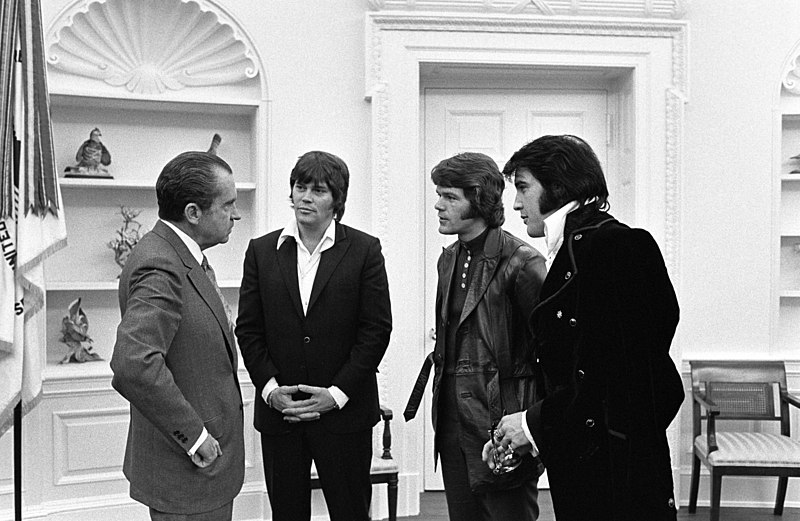
A series of photos was taken of the meeting, including the famous one of the pair in front of the flag, shaking hands. Elvis did get his badge, and later bragged that he was a “federal agent-at-large,” but there is no such thing.
Read another story from us: Larry King accidentally rear-ended JFK
No one knows for sure whether Elvis was sincere, pulling Nixon’s leg by being high in the White House and preaching against drugs, or just strung out with no sleep, as he was wont to do.
Matthew Gaskill holds an MA in European History and writes on a variety of topics from the Medieval World to WWII to genealogy and more. A former educator, he values curiosity and diligent research. He is the author of many best-selling Kindle works on Amazon.
